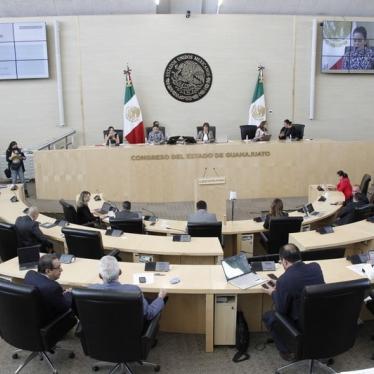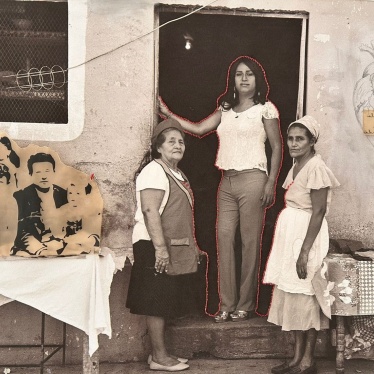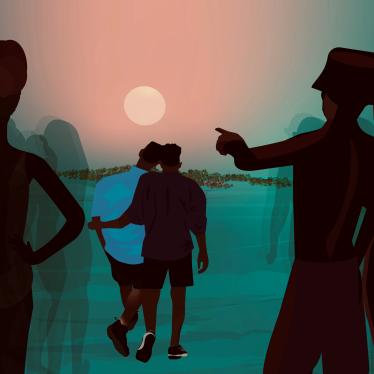June is Pride Month, during which gender and sexual minorities celebrate diversity and build upon their fight for human rights. However, in Panama, this year—15 years after the country decriminalized consensual same-sex relations—Pride Month is bittersweet. Panama’s Supreme Court recently issued two rulings categorically rejecting marriage equality.
Panama’s Family Code and Law No. 61 (2015) define marriage as between a man and a woman and explicitly rule out same-sex unions. Since 2016, four couples have challenged the constitutionality of these laws. The Supreme Court has now issued negative decisions in two of these cases.
In February, the full court ruled that Panama’s bans on same-sex marriage are “objectively and reasonably justified” because they give “precedence to those unions with the potential to establish families (in their original conception), give continuity to the human species, and, therefore, to society.” This argument is out of touch with reality. Just as many different-sex couples in Panama enjoy loving and supportive partnerships regardless of whether they have children, the same is true of same-sex couples. All of these unions should receive equal legal recognition and protection.
In May, the three-judge panel of the court’s Third Chamber rejected a lesbian couple’s administrative petition, largely employing the reasoning in the February ruling. Without considering regional human rights standards, it held that “nothing makes it possible to conclude that ‘the right to equal marriage’ is incorporated into [Panama’s] constitutional system.”
But in 2017, the Inter-American Court of Human Rights issued a landmark opinion in which it confirmed that all rights applicable to the “family relationships” of heterosexual couples should extend to same-sex couples. This opinion provides an authoritative interpretation of the American Convention on Human Rights, which Panama and 22 other countries in the Americas have ratified.
In the Americas, an estimated 877 million people already live in countries that legally protect same-sex relationships. Canada became the first in the Western Hemisphere to enact legislation recognizing marriage equality nationwide in 2005, followed by Argentina in 2010 and Uruguay in 2013. Successive court decisions affirmed marriage equality in Brazil in 2013, Mexico and the United States in 2015, Colombia in 2016, Ecuador in 2019, and Costa Rica in 2020. In 2021, Chile passed a marriage equality law, while in 2022, Cuba reformed its Family Code granting same-sex couples marriage rights. In 2023, Bolivia became the latest country in the region to recognize the rights of same-sex couples through a court ruling on civil unions.
All these countries have acknowledged that in diverse and secular populations, neither reproductive capacity nor traditions that privilege a majority group over others can justify denial of equality before the law. Indeed, these countries have recognized that upholding the rights to privacy, equality, and non-discrimination for all people, irrespective of their sexual orientation, upholds human dignity and our common humanity.
Panama is disregarding the many ways gay and lesbian couples in the country are legally disadvantaged. LGBT people may be denied the right to make medical decisions on a partner’s behalf when they are sick, have their partner covered under their health or employment benefits, apply for immigration and residency for a partner from another country, rent or own property together, or inherit from a deceased partner who dies without a valid will.
Same-sex couples in Panama are not giving up. They will turn to the Inter-American human rights system to vindicate their rights. One couple started the process well before these decisions. Their pending case with the Inter-American Commission on Human Rights argues that they’ve faced unreasonable delays in getting the Supreme Court to issue a final ruling in a lawsuit they brought in 2016. Another couple took their case to the Inter-American Commission immediately after the Supreme Court’s first ruling.
The Panamanian government should not wait for the Inter-American Commission to rule. In July 2020, five government ministries and the Ombudsperson’s Office issued a statement that said, “the National Government rejects any type of hostility, violence, xenophobia, homophobia, transphobia or discrimination[.]” Citing the country’s international obligations, these authorities showed a strong political commitment to the principles of equality and non-discrimination. President Laurentino Cortizo and the National Assembly should put these statements into practice and propose a marriage equality bill.
The two negative marriage equality rulings will not stop this year’s Pride celebrations in Panama. In fact, they reinforce the importance of sustained LGBT activism and visibility. Panamanian authorities should listen to the demands of activists and be reminded that unequal treatment of any kind not only causes harm but also flies in the face of principles Panama has pledged to uphold.
--
Iván Chanis Barahona is the president of the Panama-based Fundación Iguales
Cristian González Cabrera is an LGBT Rights researcher at Human Rights Watch








